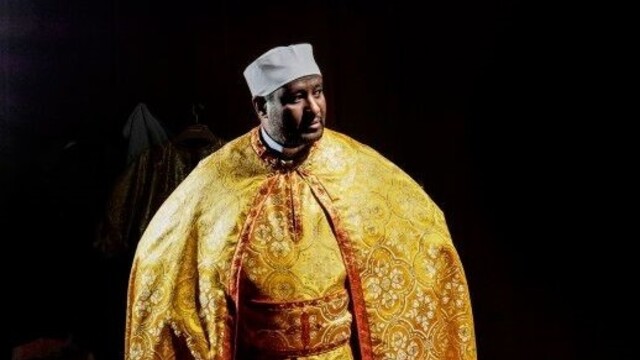
Father Mussie Zerai
2015 Nobel Peace Prize Nominee
Father Mussie Zerai is a Catholic priest from Eritrea, whose main mission is to serve all humanity. He leads the Eritrean diaspora community through his church both in Switzerland and Italy.
Don Mussie Zerai has earned the nickname of ‘The Angel of the Refugees’ in international press for his years of activity in defence of the rights and lives of asylum-seekers and migrants fleeing the Horn of Africa and countries of sub-Saharan Africa towards Europe or Israel, which is considered an outpost of the West: thousands of desperate young men and women, families and abandoned youth trying to escape hunger and famine, war and persecution.
Father Mussie was among the favourite nominees for the 2015 Nobel Peace Prize.
He himself has an experience of being a refugee. Born in Asmara, Eritrea, he was unfortunately expatriated to Italy in 1992 at the age of 17 as a political refugee. It is a story that he never forgot and that has indeed marked his life since that spring morning. He felt a moral obligation to put his experience and his forces in the service of other young people like him. Becoming an activist for human rights was the natural outcome of this choice, which he later strengthened by years of study: philosophy in Piacenza from 2000 to 2003, theology within five years and then social morality at the Pontifical Urban University until 2010, when he was ordained as a priest.
His mission especially intensified right after he took the vows as it coincided with the worsening of the refugee situation due to a series of crises erupting in Africa. Father Mussie was among the first to identify the slave trade in Sinai. It is still an open wound with hundreds of young people caught in the desert near the border with Israel by bands of marauding Bedouins linked to international criminal organizations. The ransoms that these criminal organizations issue for every prisoner have soared from 8-10 thousand to 40-50 thousand dollars and they have threatened to deliver those who are unable to pay to the market of organs for illegal transplants.
Father Mussie’s efforts to resolve this crisis made through Agenzia Habeshia, the agency of assistance he founded, as well as those of other humanitarian organizations have aroused feeling in the whole world but the echo hushed within a few weeks.
Since then, it has been an escalation of horror. The slave trade in the Sinai has never ceased, not even after Israel raised an impenetrable barrier of barbed wire and electronic sensors, closing its border with Egypt in 2012. It has just changed the criminal strategy: instead of waiting for the migrants in Sinai, the raiders now lure them by promising them a future in Europe or even kidnapping them directly in the centres of temporary residences spread out between Sudan and Ethiopia. Indeed, the mafia traffickers have extended its tentacles all along the escape routes of migrants, both in the countries of transit to Europe and in the initial reception: Ethiopia, Sudan, Egypt, and Libya. The crises, riots, wars, famine exploding in 2010 continue to produce refugees and asylum seekers and, therefore, "human material" to be exploited by traffickers to death.
Father Mussie has become a point of reference for the victims of all this: first in Rome, where he exercised the first phase of his priesthood, and now in Switzerland, where he moved as a national officer for the pastoral care of Eritreans and Ethiopians residing in the Helvetic Republic. In addition to organizing a network of direct aid, he continues to document and advocate for this tragedy to be entered as a priority on the agenda of the UN, the EU and all Western governments.
His voice has not been ignored: it has been repeatedly heard by the High Commissioner for Refugees; in June 2012 he has had a formal hearing with then-US Secretary of State Hillary Clinton in Washington; he was summoned by the commission Affairs and Human Rights of the European Union to which he delivered in particular, at the beginning of November 2012, a report on the appalling conditions of detention centres in Libya; in 2014 he had two meetings in Brussels on the situation in Libya and in the Mediterranean and, later, a debate on human trafficking with the EU Commissioner Cecilia Malmstron. In early February, he has faced this same problem in the Vatican during an interview with Ambassador Luis CdeBaca of the Department of State. On April 10, 2014, Father Mussie had a historic meeting with Pope Francis on combating trafficking in human beings. In many cases, his dossier have become the basis for investigations of the international judiciary or of individual countries and he has been contacted several times as an "expert" by various MEPs.
"But it is only the beginning of a long and difficult - continues to repeat - This enormous tragedy will be solved, as he warned Pope Francis, only when the mighty of the earth will change their policy towards the South. The last of the earth. "